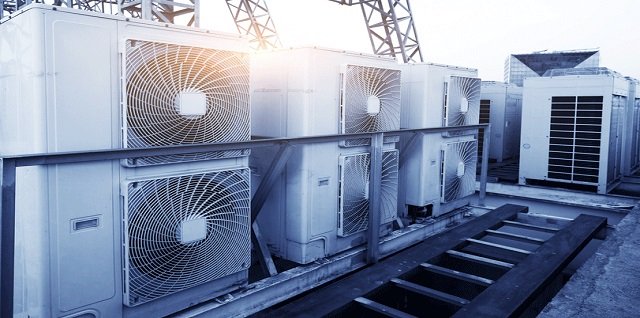The HVAC (Heating, Ventilation, and Air Conditioning) industry plays a crucial role in maintaining indoor environmental comfort and air quality. It encompasses a wide range of applications, from residential and commercial buildings to industrial facilities and specialized environments such as cleanrooms and healthcare facilities. Here is a detailed overview of the purpose of the HVAC industry:
1. Thermal Comfort
One of the primary purposes of HVAC systems is to ensure thermal comfort for occupants. This involves maintaining indoor temperatures within a range that is comfortable for human habitation, regardless of external weather conditions.
- Heating: Provides warmth during cold weather to maintain comfortable indoor temperatures.
- Cooling: Reduces indoor temperatures during hot weather, preventing overheating and ensuring a pleasant environment.
2. Indoor Air Quality (IAQ)
HVAC systems play a critical role in maintaining good indoor air quality by controlling air cleanliness, humidity, and ventilation.
- Air Filtration: Removes dust, allergens, pollutants, and other airborne particles through filters.
- Ventilation: Ensures a supply of fresh outdoor air, diluting indoor pollutants and removing stale air.
- Humidity Control: Maintains appropriate humidity levels to prevent issues such as mold growth, condensation, and respiratory discomfort.
3. Energy Efficiency
The HVAC industry focuses on designing and implementing energy-efficient systems to reduce energy consumption and operational costs.
- Efficient Equipment: Use of high-efficiency furnaces, air conditioners, heat pumps, and chillers.
- Energy Management Systems: Automated controls and building management systems that optimize HVAC operation based on real-time demand.
- Renewable Energy Integration: Incorporation of renewable energy sources such as solar panels and geothermal systems to reduce reliance on traditional energy sources.
4. Safety and Compliance
HVAC systems must comply with various safety and regulatory standards to ensure the safety and health of occupants.
- Compliance with Building Codes: Adhering to local and international building codes and standards, such as ASHRAE (American Society of Heating, Refrigerating and Air-Conditioning Engineers) standards.
- Fire Safety: Proper design and maintenance of HVAC systems to prevent fire hazards and ensure safe evacuation routes in case of emergencies.
- Health Regulations: Compliance with health regulations, especially in environments like hospitals and laboratories where air quality is critical.
5. Specialized Applications
In addition to general comfort and air quality, HVAC systems are essential for various specialized applications:
- Cleanrooms: Used in pharmaceutical, semiconductor, and biotechnology industries, requiring strict control over air quality, temperature, humidity, and pressure to prevent contamination.
- Healthcare Facilities: Ensuring sterile environments in operating rooms, isolation wards, and other critical areas to protect patients from infections.
- Data Centers: Maintaining precise temperature and humidity control to prevent overheating and ensure reliable operation of servers and other electronic equipment.
- Industrial Processes: Controlling environmental conditions to ensure the quality and safety of manufacturing processes, storage of sensitive materials, and proper functioning of equipment.
6. Environmental Sustainability
The HVAC industry contributes to environmental sustainability by developing technologies and practices that reduce the environmental impact of heating, cooling, and ventilation.
- Reduction of Greenhouse Gas Emissions: Developing and using refrigerants with lower global warming potential (GWP) and improving the efficiency of HVAC systems to reduce carbon footprints.
- Sustainable Building Design: Promoting the integration of HVAC systems in green building design, supporting certifications like LEED (Leadership in Energy and Environmental Design).
- Water Conservation: Implementing systems like cooling towers and evaporative coolers that use water efficiently.
7. Technological Innovation
The HVAC industry continuously evolves through technological advancements, improving system performance, efficiency, and user experience.
- Smart HVAC Systems: Use of IoT (Internet of Things) and smart home technologies for remote monitoring, control, and optimization of HVAC systems.
- Variable Refrigerant Flow (VRF) Systems: Allowing precise control of refrigerant flow to multiple indoor units, improving efficiency and comfort.
- Heat Recovery Systems: Capturing and reusing waste heat from processes and exhaust air to reduce energy consumption.
Conclusion
The HVAC industry serves a vital purpose in creating comfortable, healthy, and safe indoor environments across various settings. It addresses thermal comfort, indoor air quality, energy efficiency, safety, specialized applications, environmental sustainability, and technological innovation. By doing so, the HVAC industry significantly contributes to the well-being of individuals and the efficient operation of commercial and industrial facilities.
Looking to install a commercial HVAC System or Duct work in your Business Area?
Contact Vipul Ac to learn about our HVAC Service
Call +91 9825636606 Today.

